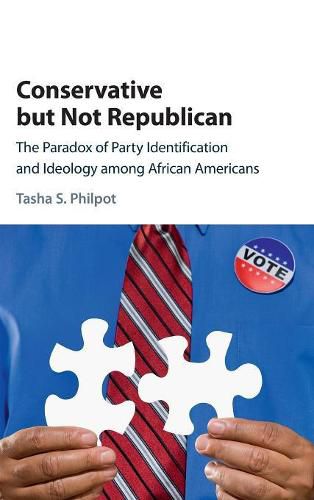Readings Newsletter
Become a Readings Member to make your shopping experience even easier.
Sign in or sign up for free!
You’re not far away from qualifying for FREE standard shipping within Australia
You’ve qualified for FREE standard shipping within Australia
The cart is loading…






Conservative but Not Republican provides a clear and comprehensive framework for understanding the formation and structure of ideological self-identification and its relationship to party identification in the United States. Exploring why the increase in Black conservatives has not met with a corresponding rise in the number of Black Republicans, the book bridges the literature from a number of different research areas to paint a detailed portrait of African-American ideological self-identification. It also provides insight into a contemporary electoral puzzle facing party strategists, while addressing gaps in the current literature on public opinion and voting behavior. Further, it offers original research from previously untapped data. The book is primarily designed for political science, but is also relevant to African-American studies, communication studies, and psychology. Including easy-to-read tables and figures, it is accessible not only to academic audiences but also to journalists and practitioners.
$9.00 standard shipping within Australia
FREE standard shipping within Australia for orders over $100.00
Express & International shipping calculated at checkout
Conservative but Not Republican provides a clear and comprehensive framework for understanding the formation and structure of ideological self-identification and its relationship to party identification in the United States. Exploring why the increase in Black conservatives has not met with a corresponding rise in the number of Black Republicans, the book bridges the literature from a number of different research areas to paint a detailed portrait of African-American ideological self-identification. It also provides insight into a contemporary electoral puzzle facing party strategists, while addressing gaps in the current literature on public opinion and voting behavior. Further, it offers original research from previously untapped data. The book is primarily designed for political science, but is also relevant to African-American studies, communication studies, and psychology. Including easy-to-read tables and figures, it is accessible not only to academic audiences but also to journalists and practitioners.